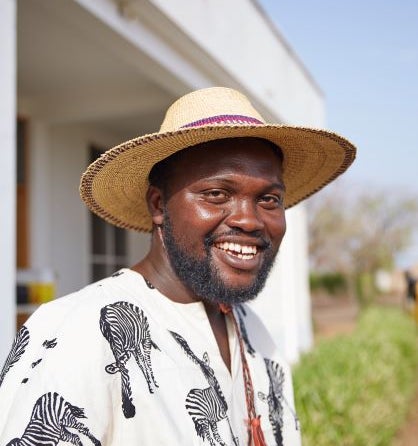Current Fellows
The 2025-26 Linda Hall Library Fellowship cohort includes researchers based in the United States, Austria, Canada, Italy, Mexico, and the United Kingdom. These doctoral students, postdoctoral scholars, and independent researchers will use the Library's holdings to investigate the history of science, technology, and engineering. Their projects reflect the breadth and depth of our collections, including the investigations into the history of telephone poles, longitude, and the art poetry of science.
The Linda Hall Library is also offering several specialized research fellowships this year:
- Silvia M. Marchiori, a graduate student at the University of Cambridge, received the History of Science and Medicine Fellowship, which has been jointly sponsored by the Linda Hall Library and Clendening History of Medicine Library at the University of Kansas Medical Center since 2019.
- Malcolm Noble, a freelance historian, received the Presidential Fellowship in Bibliography, which supports research that focuses on the study of books and manuscripts as physical artifacts.
More information about our fellows and their research projects can be found below.
Former Fellows
We have welcomed over one hundred research fellows since 2011, including scholars from 22 countries on six continents. Our fellows come from a variety of professional backgrounds, but they all used our collections to explore the ways science, technology, and engineering have transformed our world. Find out more about their investigations by clicking here.
2025-26 Linda Hall Library Fellows
Seeing Stars: Astronomical Media
Brooke Belisle is an Associate Professor in the Department of Art at Stony Brook University, where she is also affiliated with the Institute for Advanced Computational Science and the Alda Center for Communicating Science. Her work explores emergent and experimental media aesthetics across art, science, and popular visual culture. Her 2024 book, Depth Effects: Dimensionality from Camera to Computation, considers the contingency of how things appear to cohere and draws unexpected connections between early photography and current techniques of AI-enabled imaging.
As a fellow, Belisle will work with the Linda Hall Library's collection of illustrated astronomical texts, celestial atlases, and astrophotography to trace how changing visual methods have reshaped our view of the cosmos. This research develops her current book project, Seeing Stars: Astronomical Media, which considers the visual aesthetics of astronomy from lens-based through computational methods.
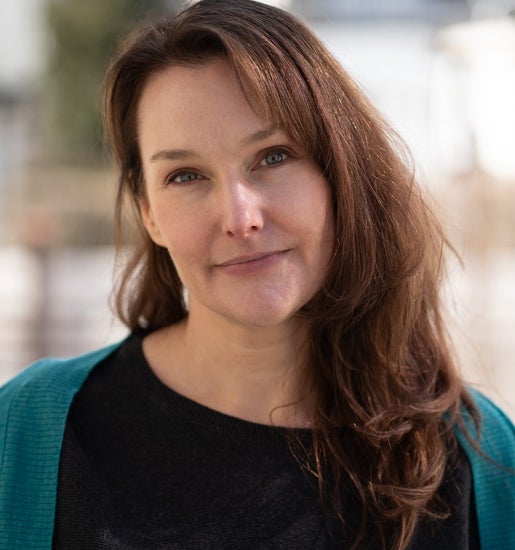
Downstream from the Locks: The Technopolitics of Water in Panama's Urban Borderlands
Francisco Javier Bonilla is a historian of Latin America whose work explores the intersections of infrastructure, empire, and environmental governance. He earned his PhD in History from Carnegie Mellon University in 2024, with training in environmental history, political ecology, and the history of technology. His dissertation examines the socioenvironmental impact of the Panama Canal on its host environments. Downstream from the Locks explores how aqueducts, fire-fighting systems, and wetlands reclamation projects reconfigured urban space, politics, and everyday life in Panama City and Colón from the colonial period through the mid-twentiet century. By framing these cities as "infrastructural borderlands" shaped by overlapping sovereignties, Bonilla challenges triumphant U.S.-centered narratives of modernization and instead foregrounds Panamanian agency, resistance, and technopolitical negotiation. His research has appeared in Environment and History, Agua Y Territorio, and the Handbook of the Anthropocene in Latin America (Bielefield, 2025), the latter expanding the framework of US colonial hydrology framework beyond Panama to Puerto Rico and Cuba. He is also a regular contributor to NACLA.
At the Linda Hall Library, Bonilla will conduct research for a new chapter of his book manuscript by examining rare engineering journals, technical publications, and public health records related to water infrastructure in the Panama Canal Zone. Focusing on the period from 1880 to 1930, this research will illuminate how U.S. sanitary engineering knowledge circulated transnationally and how it interacted with existing Panamanian water systems and urban governance. Bonilla is particularly interested in how imperial technocracy and localized expertise collided in the planning and implementation of aqueducts and sewerage networks. By tracing the socio-technical entanglements of water governance, this work contributes to a broader reinterpretation of Panama’s urban history as central to the global history of empire, environment, and the water management issues currently afflicting the canal.
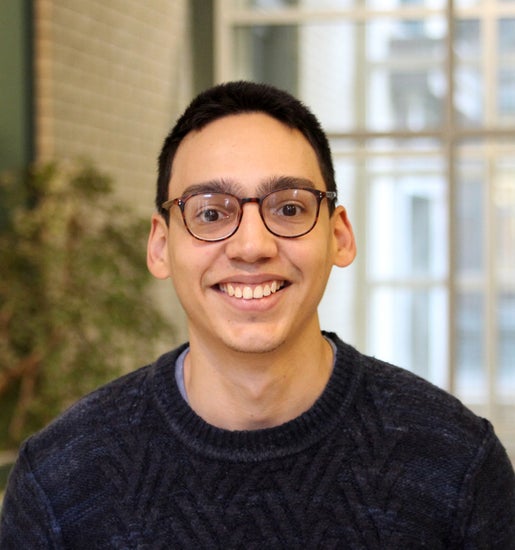
Perfecting Galileo: Collaborations Between Artist and Astonomer in 17th-Century Europe
Elizabeth Carleton is a PhD candidate in art history at the University of California, Riverside. Her dissertation, Perfecting Galileo: Collaborations Between Artist and Astronomer in 17th-Century Europe, evaluates three responses to Galileo’s lunar representations: Claude Mellan’s 1637 lunar engravings; Johannes Hevelius’s 1647 lunar atlas, Selenographia: sive, lunae descriptio; and Giovanni Battista Riccioli’s 1651 Almagestum novum. Each of these projects represents a different type of collaboration between artist and scientist in the early modern period. In revisiting seventeenth-century selenography, Carleton hopes to enhance our understanding of the intellectual landscape of early modern Europe. As an art historian, she is interested in how the aesthetic aspects of these engraved lunar maps informed or enhanced their significance, both as scientific works and as cultural objects more generally.
During her fellowship in Kansas City, Elizabeth is conducting primary- and secondary-source research with the Linda Hall Library’s expansive historical astronomy collection. Her dissertation contributes to the growing body of literature on seventeenth-century astronomy by analyzing the relationships between astronomer and artist in her chosen case studies. In centering the collaboration and intersection between artists and scientists, this project is part of a rich and emerging subfield of interdisciplinary scholarship, creating connections between art history and the history of science.
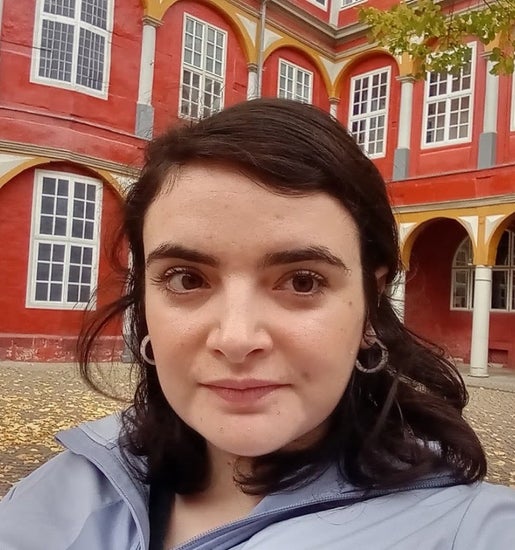
Plan[e]t Engineer: Gene Wolfe and the Deep Future of the Anthropocene
Stephen Case is a Professor in the Department of Chemistry and the Geosciences at Olivet Nazarene University. He earned his PhD in the history and philosophy of science from the University of Notre Dame. He focuses on the history of science and technology and has published Making Stars Physical: the Astronomy of Sir John Herschel (2018) and Creatures of Reason: John Herschel and the Invention of Science (2024), both with University of Pittsburgh Press. He is also co-editor of The Cambridge Companion to John Herschel (Cambridge University Press, 2024). His essays have appeared in Physics Today, Aeon Magazine, American Scientist, and Pour la Science.
At the Linda Hall Library, Case will use the library’s holdings to explore the career of the American engineer and science fiction author Gene Wolfe (1931–2019) during his time as managing editor of the trade journal Plant Engineering (1972 to 1986), examining the ways Wolfe responded to transformations and ecological impact of industrial manufacturing as engineer, editor, and writer. The project aims to reveal how Wolfe’s work at the journal informed his acclaimed science fiction masterpiece The Book of the New Sun (1980–1984), a four-volume novel offering a literary response to growing apprehension of human impact on the environment.
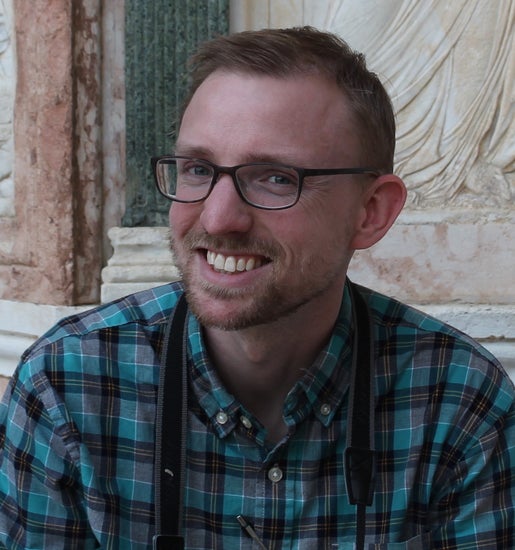
Electric Trees: An Environmental and Embodied History of Telecommunications Infrastructure
Michael Feagan is a recent PhD graduate of the University of Western Ontario. His research interests encompass the History of Technology, Labour History, Environmental History, Canadian History, and American History. He wrote his PhD dissertation on the work of telegraph operators in Canada and the United States from 1870 to 1929. His dissertation primarily explores the class identity of telegraphers and the ways in which large technological systems can obscure class relations, and the real physical human labour required to make these networks function. Michael’s current post-doctoral project at the Linda Hall Library builds off his dissertation by continuing to emphasize that telecommunications technologies and labour are not invisible, ethereal, or frictionless.
Michael’s current research at the Linda Hall Library explores the historical impact of telecommunications infrastructure on the health of environments, workers, and the general public. This project aims to trace the technical justifications telecommunications companies had for using lead, creosote, and certain trees for poles from the late nineteenth century to the mid-twentieth century. This will be built upon by assessing the historical impacts of telecommunications infrastructure on American and Canadian landscapes through logging, lead and copper mining, and the production and application of chemical preservatives like creosote. In addition to the environmental impact, this project also seeks to trace the historical health impact that telecom companies’ use of lead and creosote had on its workers and the public.
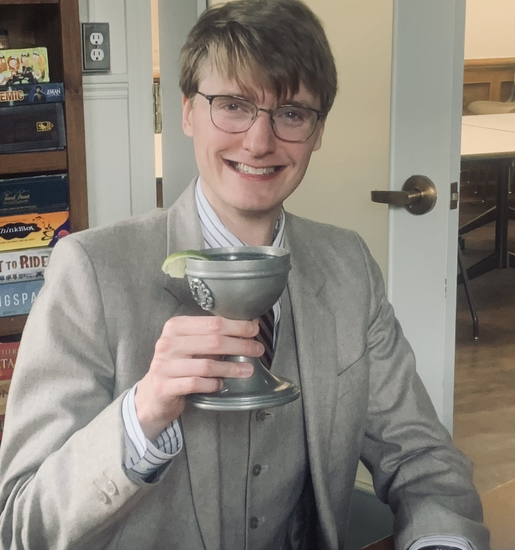
Updating the History of Longitude
Karen Bloom Gevirtz is an independent scholar based in New Jersey. After twenty-five years as an English professor, she left the academy and now researches and writes for a non-specialist audience. Her work examines the interrelationship of text, gender, and the development of science and medicine during the early modern period in the British Isles and Europe. Her most recent book, The Apothecary’s Wife: The Hidden History of Medicine and How It Became a Commodity (University of California Press/Head of Zeus, 2024), was one of Kirkus Review’s Best Nonfiction Books of 2024. In it, Gevirtz shows how modern, aka “scientific” medicine replaced domestic medicine before the former offered better – or even different – medications.
As a Linda Hall Library Fellow, Gevirtz will continue research for her current book project, Constellation: The International, Intergenerational Network of Men and Women Who Solved Longitude. She will examine materials that establish connections among men and women, particularly across Eastern Europe, participating in the search for a means of calculating longitude at sea during the early modern period. She is especially interested in the library’s collection of works by women or responding to their contributions, and in its extensive holdings in technology, specifically inventing, making, and improving instruments such as telescopes and clocks.
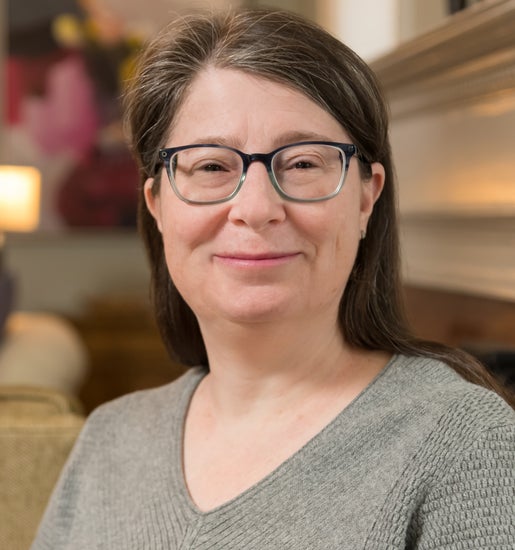
Trees as Bodies of Communication: The Arboreal Aesthetic in French Painting, 1780-1870
Amelia Goldsby is a PhD candidate in art history at the University of Iowa. Broadly, her interests lie in ecocriticism, European art of the eighteenth and nineteenth centuries, and contemporary art. Her doctoral research asks: What if we treated trees as equally important to human figures in painting? She hopes to uncover new ecological, social, and artistic meaning by considering trees as generative actors in eighteenth- and nineteenth-century French art. Her dissertation, “Trees as Bodies of Communication: The Arboreal Aesthetic in French Painting, 1780-1870,” draws on artistic theory, environmental history, and scientific knowledge to investigate how representations of tree and human bodies create critical narratives. This dissertation proposes a new method for interpreting the representation of trees, thereby enriching our understanding of human-nature relationships in the eighteenth and nineteenth centuries.
At the Linda Hall Library, Amelia will study French texts on botany, silviculture, and arboriculture to aid the second chapter of her dissertation, tentatively titled “The Practice and Theory of Landscape, Botanophilia, and the Arboreal Aesthetic.” This chapter will explore the connection between landscape drawing manuals, botanical publications, and the narrative function of trees in painting.
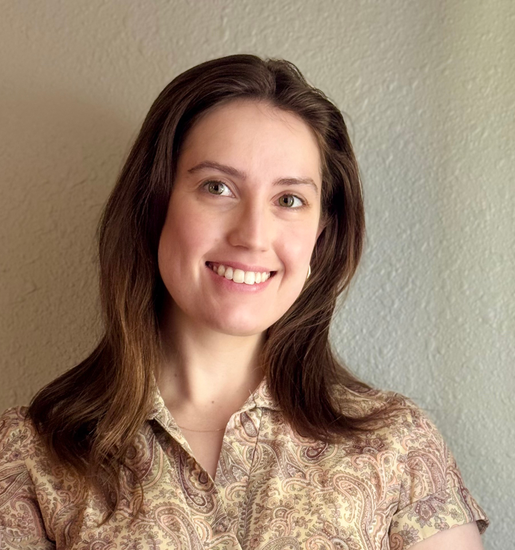
Standardizing the Skies: The UGY and Its Role in Shaping Meteorology Across the Americas
Gloria Maritza Gómez Revuelta is a historian of science and technology specializing in outer space and geophysics in Cold War Latin America. Her research explores the intersections of scientific inquiry and political maneuvering during this pivotal period, with particular attention to the relationship between Earth physics and Inter-American geopolitics. She examines how Latin American scientists navigated the Cold War landscape, focusing on the influence of Latin-Americanism and Third World ideologies in efforts to achieve scientific autonomy, challenge dominant power structures, and assert national sovereignty on both regional and global stages.
She earned her PhD in History from El Colegio de México in 2024. Since 2021, she has taught at the Universidad de Guadalajara, where she is also involved in science communication initiatives. In addition, she conducts independent work in public history and community archiving, collaborating with rural communities in Western Mexico affected by displacement due to water-related issues.
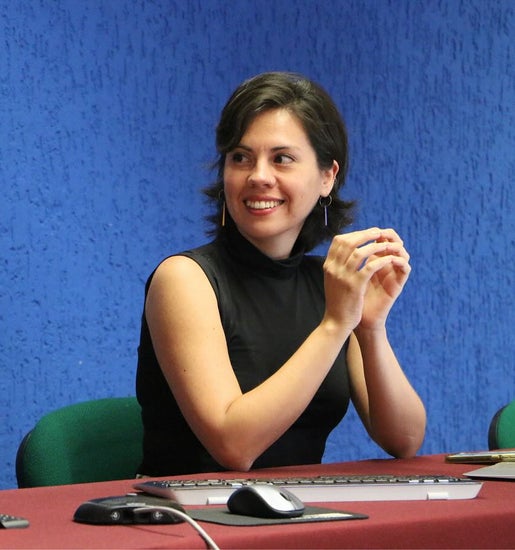
Rationalizing Socialsim: Management, Information, and Technocracy in East Germany, 1953-1989
Yooseong Heo is a PhD candidate in History at Duke University. His dissertation examines management information systems (MIS) in East Germany, focusing on the project of building up the National Economic Information System (VIS), a countrywide computer network system designed to automate economic management and planning, and its aftermath. Situated at the intersection of the histories of computing, economics, and information infrastructure, this dissertation analyzes how East German mathematical economists, industrial engineers, and management scientists sought to rationalize the socialist economy and state-owned enterprises through computational models, algorithmic decision rules, and various industrial classification and nomenclature systems.
During his Linda Hall Library fellowship, Heo will trace how East German MIS experts were forced to come to terms with workers’ unpredictable behavior, which continually disrupted the management algorithms embedded in enterprise-level MIS during the late socialist period. Drawing on the Library’s extensive holdings on East German management science and information systems—primarily journals and gray literature from the Academy of Sciences—this research will allow him to extend his understanding of socialist computing technocracy by analyzing how the design of MIS was conditioned by workers’ evasive and willful behavioral patterns.
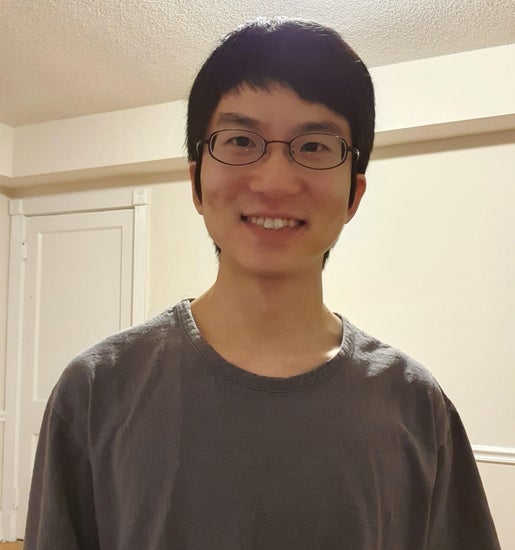
Running Barefoot in the Leaves of Grass: A Bodeme Funk Investigation into the Poetry of Science
Roman Johnson, PhD is a writer and scientist interested in ecological poetics from Memphis, Tennessee. He is a Master of Fine Arts scholar in poetry at Brown University. He has a Ph.D. in Medical Sociology from the University of Alabama at Birmingham, a M.A. in African American Studies from Georgia State University, and obtained a B.A. in Political Science from Morehouse College. He is the co-founder of the New England Hoodoo Society. He is the current Radical Reversal Poet in Residence at the Suffolk County House of Corrections in Boston, Massachusetts. He is the winner of the Lucille Clifton Poetry Prize from Backbone Press, a past winner of the Clark Atlanta University Poetry Prize and has received fellowships from Harvard University, Northwestern University, the University of Alabama at Birmingham, Brown University, the National Institutes of Health, Breadloaf, Lambda Literary, Tin House, the Writers’ Studio, Martha Vineyard Institute of Creative Writing, Obsidian Foundation United Kingdom, the City of Boston, the Linda Hall Library, Massachusetts Cultural Council, the New England Poetry Club, the Palm Beach Literary Festival, the Hudson Valley Writers Center, the Poets and Scholars Summer Writing Retreat at Rutgers University, and the Watering Hole, and elsewhere. His work has received both Pushcart Prize and Best of the Net nominations and concerns itself with grief, longing, masculinity, violence, and connection. His work can be found in Obsidian, African Voices Magazine, and elsewhere. He can be found online at his personal website: literaryhoodoo.com. He believes the real work of writing is living well.
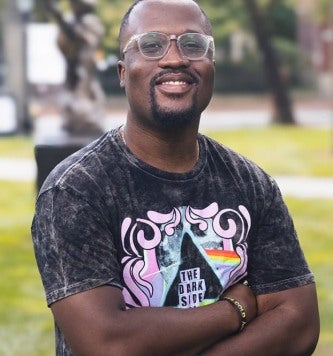
Running Barefoot in the Leaves of Grass: A Bodeme Funk Investigation into the Poetry of Science
Shanna Killeen is a PhD candidate in Comparative Literature at the University of California, Santa Barbara. They specialize in transnational American literary and cultural studies, focusing on disability studies, queer studies, ethnic studies, and global studies. Their dissertation explores affective norms and the ways in which neurodivergent people are pathologized as lacking in emotion and empathy. Their scholarship also turns to the contemporary aesthetic and discursive practices of neurodivergent people to ask what they tell us about affect, care, and the human.
During their fellowship with the Linda Hall Library, Killeen will examine conversations around mental illness and neurodivergence illuminated in documents from the 1900s, including conference proceedings, training guides, academic texts, and annotated research reports. They hope to trace the evolution of psychiatric rhetoric through the 20th century, particularly through the post-WWII period, to identify a lineage of medical, psychiatric, and popular rhetoric that targets affect and empathy.
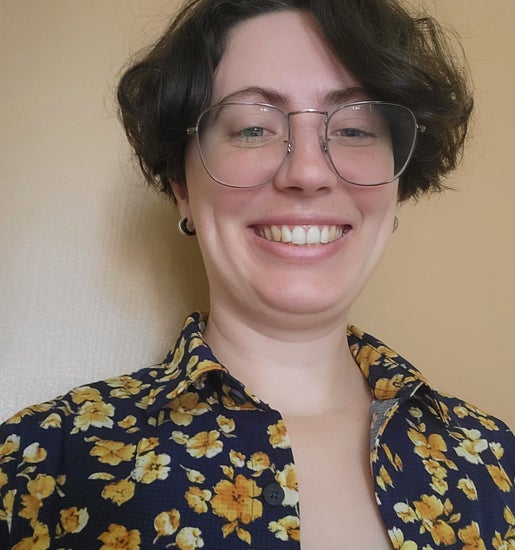
The Powers of Painting: Art and Astrology in Renaissance Italy
Anna Majeski received a Ph.D. in art history from the Institute of Fine Arts, NYU in 2022. Anna’s research focuses on intersections between art and science in Renaissance Italy, including the relationship between the production of images and knowledge, and scientific imagery as an arena for articulating emergent concepts of art. Her doctoral dissertation examined a remarkable series of astrological fresco cycles completed in Padua between 1300 and 1440 and was supported by a predoctoral fellowship in Medieval Studies from the American Academy in Rome. Between fall 2022 and summer 2024, Anna was Mellon Foundation Exhibition Research Fellow and then Exhibitions Researcher at the American Philosophical Society, Library & Museum, where she curated an exhibition on American natural history from 1750 to 1850 and authored the accompanying catalog. And from July 2024 to June 2025, she was Robert Lehman Fellow at Villa I Tatti, The Harvard University Center for Italian Renaissance Studies. As a Linda Hall Fellow, she will be researching her book project, The Powers of Painting: Art and Astrology in Renaissance Italy.
The Powers of Painting argues that astrological science and talismans helped define the agency of images during the Italian Renaissance. Renaissance astrology contended that powerful celestial images—the constellations and planets—shaped everything on earth. Early modern scientists and artists also believed that manmade images, called astrological talismans, could channel those heavenly forces through human art. Talismans demonstrate that Renaissance naturalism was about more than ‘imitating’ nature. Intervening in foundational studies on image agency, this book argues that the astrological talisman platformed a new concept of art’s efficacy, entering into dialogue—sometimes contentious—with existing models like the ‘icon’ or the ‘idol’. Astrological talismans also emerged out of a science of images systematized by scholars like Thābit ibn-Qurra in ninth-century Baghdad, developed by thinkers across an Afro-Asian intellectual network, and only reaching the Latin West around 1250. Transcultural exchanges animate the production of talismans throughout the period covered in the study. Tracing the influence of talismanic concepts in Italian painting from 1300 to 1500 through case studies in Padua, Florence, Milan, Rimini, and Ferrara, this book reveals the Renaissance pictorial revolution as the product of a culturally entangled intellectual and artistic discourse.
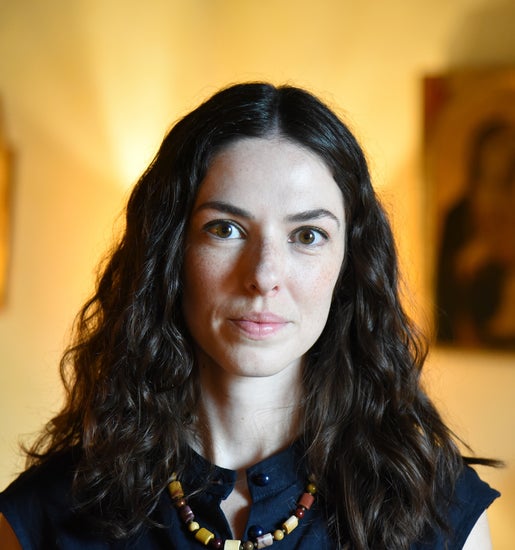
A Toolbox in a Book: Images of Surgical Equipment in Eighteenth-Century
Silvia M. Marchiori is a PhD candidate in the Department of History and Philosophy of Science at the University of Cambridge. Her doctoral project focuses on the reception of ancient medical texts in medieval and early modern Europe, with particular attention to Cornelius Celsus’ De medicina. Her research has been supported by an AHRC Open-Oxford-Cambridge grant, and she received fellowships from the New York Academy of Medicine, the Folger, Huntington, and Osler Libraries, the Gladys Krieble Delmas Foundation, and the British School at Rome.
In Kansas City, Silvia will work on a transhistorical history of surgical instruments that brings together textual, visual, and material sources produced between the twelfth and the eighteenth centuries. At the Linda Hall Library and the Clendening History of Medicine Library, she will study seventeenth- and eighteenth-century surgical treatises and tables of instruments to explore instances of invention, but especially of adaptation, translation, and repurposing of surgical equipment in pre-modern Europe, revealing examples of technological transfer between classical and Arabic sources, surgical practitioners, and artisans.
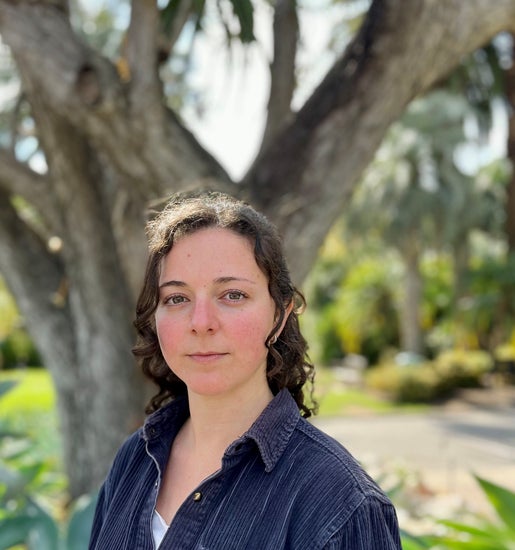
Environment and Evangelization in the Colonial Americas: Jesuits and Early Modern Science
Piper Milton is a PhD Candidate in the History Department at the University of California, Santa Cruz. Her research focuses on Jesuit missionary activity in northwestern colonial Mexico, along what is now the Arizona-Sonora borderlands. She specifically focuses on the intersection between religious and environmental history in the seventeenth and eighteenth centuries and explores how missionaries understood and responded to weather phenomena, and how their efforts impacted landscapes and Indigenous lifeways. She is especially interested in the circulation of information on weather, climate, and botanical exchange across the Atlantic in the decades surrounding the Jesuit expulsion in 1767. At the Linda Hall Library, she will focus on their collection of early modern works centered on weather and the history of science in Europe and the Americas. She is especially interested in material focusing on seventeenth-century Jesuit scientists, as well as works by Orazio Grassi and Alexander von Humboldt.
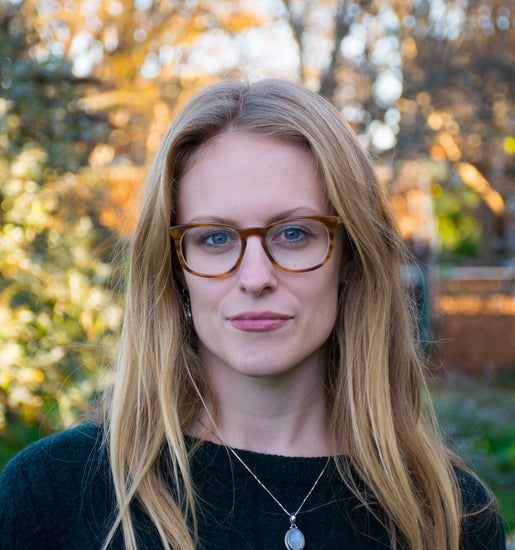
Sharing the Tele-Commons: Anti-Imperialism and Global Telecommunication Regulation, 1945to 2010s
Charli Muller is a PhD candidate in Media, Culture, and Communication at NYU and an instructor at the New School. She is interested in the history and political economy of communication technology. Her dissertation follows 20th-century debates over how to divvy up two internationally shared resources necessary for global wireless communication: orbital space for satellites and electromagnetic spectrum. By looking at the history of international telecommunication governance, the dissertation demonstrates how competing political economic ideas and anti-imperialist projects were expressed through technical regulation. As a fellow, she will consult the Library’s recently digitized collection of Latin American science and technology journals as well as the Library’s extensive collection of documents related to radio, electromagnetism, astronomy, satellites, telecommunication policy, and information theory.
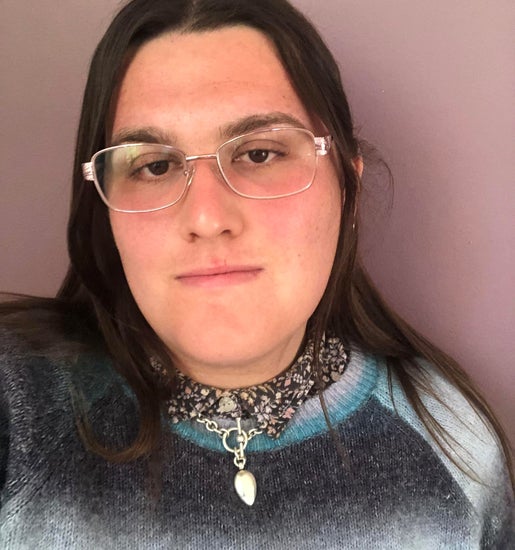
Shankar Nair is a historian of science and technology, and of modern South Asia. He received his PhD in History from King’s College London (2024). He subsequently worked as Lecturer in the History of Science and Technology at King’s (2024-25) and was co-convenor of the Centre for the History of Science, Technology, and Medicine (CHoSTM) during this time. His PhD dissertation investigated the origin and expansion of rural and small-town industries in the cotton and tobacco economies of Western and Central India in the late 19th and early 20th centuries.
During his Linda Hall Library fellowship, he will conduct research on the comparative history of cotton processing in postbellum US and late colonial India. He will use the Library’s extensive collections on cotton ginning and pressing techniques, patents, maintenance practices, and USDA documents to trace the story of the remarkable global convergence of mechanized cotton processing in this period.
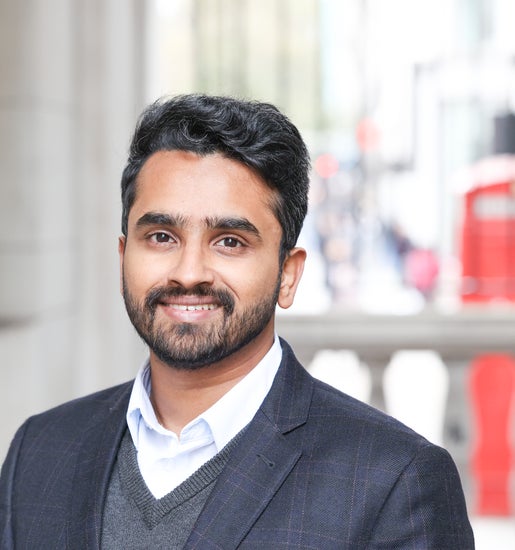
Early Colonial Engagements with Indian Mathematics
Priya Nambrath is a PhD Candidate in the Department of South Asia Studies at the University of Pennsylvania. Her dissertation project researches mathematical traditions in medieval south India, with a particular focus on the encapsulation of innovative strategies and pedagogical practices, as revealed in late medieval mathematical texts. The project also investigates the nature of early colonial engagement with Indian mathematical texts.
As a fellow at the Linda Hall Library, she will research the library��’s rich holdings of journals, proceedings, and transactions of various Indian and British scientific societies and associations from the early modern period, reports and bulletins from multiple observatories located in South India, and relevant publications from the period. The resulting analysis hopes to explore the cross-cultural collaborative dynamics of early European Indologists and Indian scholars in the transformation of the intellectual landscape and the transition to modern knowledge systems.
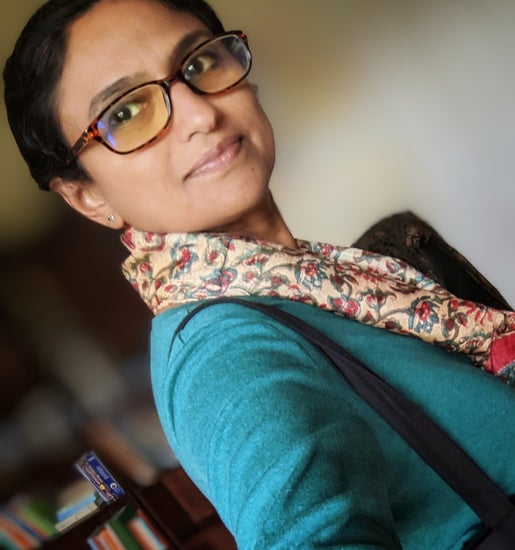
After being awarded a PhD in Economic and Social History by the University of Edinburgh in 2016, Malcolm Noble held research positions at the University of Hertfordshire and Nottingham University Business School in the UK. He is an established freelance historian and bibliographer and a member of Leicester Vaughan College, a higher education co-operative. As a business historian, he has published two books: a history of Morrison Construction (Crucible Books, 2019) and of George Farmiloe and Sons, a plumbers’ and builders’ merchant (the firm, 2024). His bibliographical work has appeared recently in a special number of The Papers of the Bibliographical Society of America, guest edited with Sarah Pyke (Münster), as well as in The New Americanist. With his current interests centering on the affordances of different printing and duplicating technologies.
As the Library’s Presidential Fellow in Bibliography, Malcolm will work on the historical development of colored and textured papers used in plain-process duplicating. He will use the Linda Hall Library’s specialist collections relating to the paper and pulp industry, and design a framework by which to describe them bibliographically. The applications of this will be as wide as the uses of different colored papers, from the tedium of business documents to vibrant zine culture: anywhere individuals sought to bring color to monochrome copying processes.
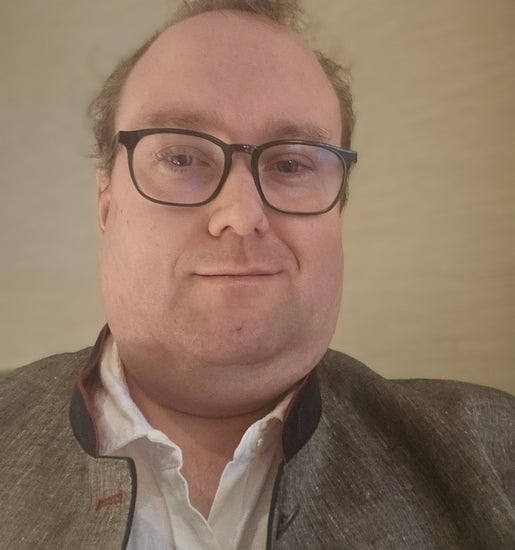
Prestige and Procurement: The Political Dynamics of Military System Selection
Omer E. Ozkan is a Ph.D. candidate at the University of Cincinnati. His research focuses on military effectiveness and the impact of emerging technologies on states’ procurement choices, with a particular emphasis on unmanned systems. He holds a Master of Arts in Political Science from the University of British Columbia.
During his fellowship at the Linda Hall Library, Ozkan will explore the political dimensions of military procurement, with a focus on the influence of non-material factors in the selection of defense systems. Using the Library’s extensive collection of procurement documents and aviation-related materials, his research examines how certain platforms gain symbolic or strategic appeal beyond their technical specifications. The project uses contemporary unmanned systems as an entry point to investigate broader patterns in state procurement behavior.
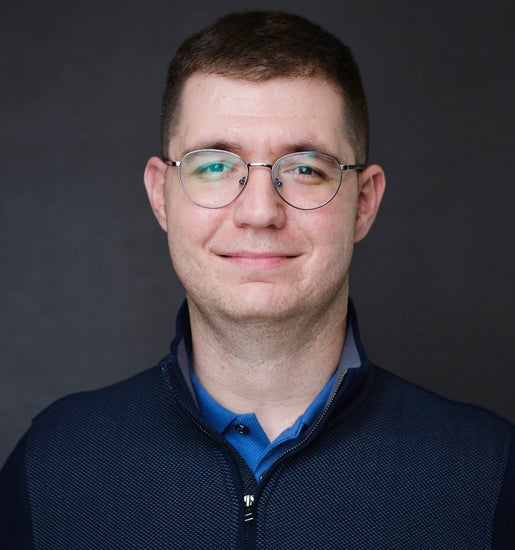
Resettler Empires: How Ottomans, Americans, and Britons Conquered the Grasslands
Zozan Pehlivan is an Associate Professor of History at the University of Minnesota, Twin Cities. She specializes in environmental history, focusing on the relationship between environmental stress and the rise of inter-communal violence in the Middle East. Dr. Pehlivan’s first monograph, “The Political Ecology of Violence: Peasants and Pastoralists in the Last Ottoman Century,” was published by Cambridge University Press as part of the Studies in Environment and History series in December 2024. This book examines the effects of recurrent nineteenth-century global climate fluctuations and related Ottoman policies on pastoralists. By focusing on the impact of climate change on the degradation of limited natural resources, the book underscores the significance of material conditions in the rise of ethnoreligious tensions between Muslim Kurdish pastoralists and Christian Armenian peasants, along with the involvement of the Ottoman state on the eve of the Great War.
Zozan’s innovative interdisciplinary research has garnered recognition from numerous institutions, including the Institute of Historical Research (2011), the American Society for Environmental History (2018), and the Ottoman and Turkish Studies Association (2021). Dr. Pehlivan is also a recipient of the Harry Frank Guggenheim Distinguished Scholar Award (2020), and her article, “El Niño and the Nomads: Global Climate, Local Environment, and the Crisis of Pastoralism in Late Ottoman Kurdistan” (2020), won the Ömer Lütfi Barkan Article Prize from the Ottoman and Turkish Studies Association. In 2023-2024, she was a Mellon Fellow at the Newberry Library in Chicago.
As a fellow at the Linda Hall Library, Zozan is working on her second book monograph, “Resettler Empires: How Ottomans, Americans, and Britons Conquered the Grasslands.” The book examines forced resettlement and migration of indigenous peoples, focusing on the American Great Plains, British Punjab, and Ottoman Kurdistan during environmental stress.
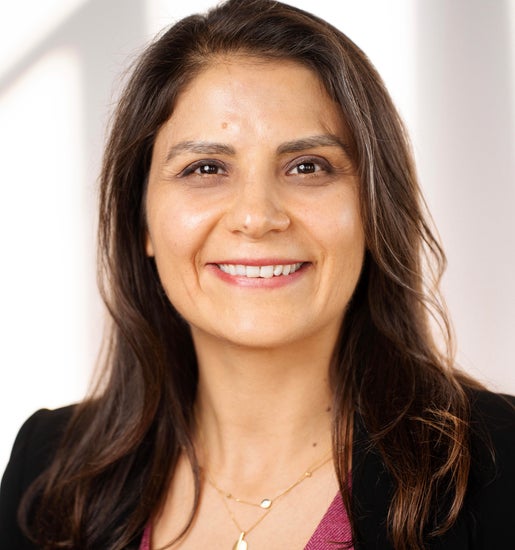
Pilar Ramírez Restrepo is a Ph.D. candidate in the History Department at the University of California, Santa Barbara. Her field is political history of colonial Latin America, with a focus on the ideological significance of indigenous languages in the Orinoco River basin—now the borderland stretching from Colombia and Venezuela to the Guianas. Her dissertation examines the Jesuit missionary network in this region during the seventeenth and eighteenth centuries through the lens of language policy and linguistics.
As a Linda Hall fellow, Pilar will work on a dissertation chapter that explores debates among former Jesuit missionaries about language taxonomies following the 1767 expulsion of the Jesuits from the Spanish Empire. By analyzing the exile as a period that catalyzed significant intellectual debates in the emerging field of comparative linguistics, Pilar seeks to connect the history of linguistics as a science with religion and colonialism. To this end, she will consult natural history publications, early writings of scientific academies, literature on early modern linguistic thought, and collections of voyages and expeditions.
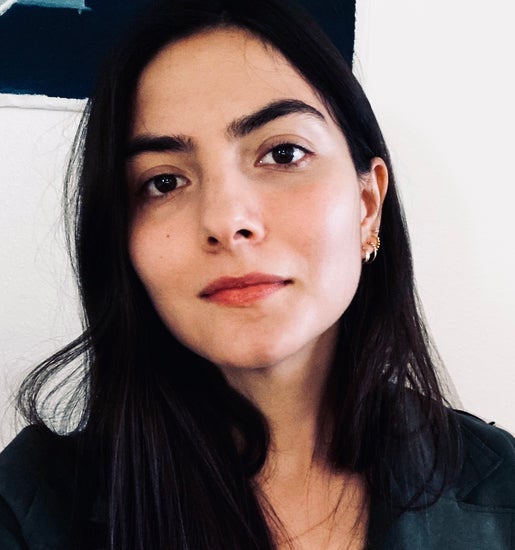
Alchemy, Annotation, and Ingenuity
Dr. James Russell is a historian of the book and of reading in Late Medieval and Early Modern Europe, with a focus on alchemical texts and Renaissance humanism. James completed his doctorate at the Institute of Medieval and Early Modern Studies at Durham University. He teaches as an Adjunct and Dual-Enrollment Instructor in the History Department at Rio Salado College in Tempe, Arizona. He has also worked as a rare and antiquarian bookseller.
James’ research examines practices of interactive reading and annotation in early print culture. His doctoral dissertation argues that books of alchemy, noted for their recombination and fusing of elements, provided an especially productive space for modes of participatory and even playful reading intended to self-cultivate ingenuity and innovation. These faculties were termed ingenium, ingegno, or “wit” in the Early Modern period. Readers honed their mental acuity by playing intellectual games with these books in pen-and-ink, in a process which anticipated the contemporary “gamification” of education. The abilities these readers developed, such as gathering ideas for composition (inventio), were the sought-after career skills by which Renaissance humanists served their patrons. These means of ludic annotation left their traces in readers’ notes, or marginalia. His project at the Linda Hall Library aims to examine how 15th-17th century readers engaged in these practices of cultivating their creativity with reference to the Library’s extensive collection of alchemical literature.
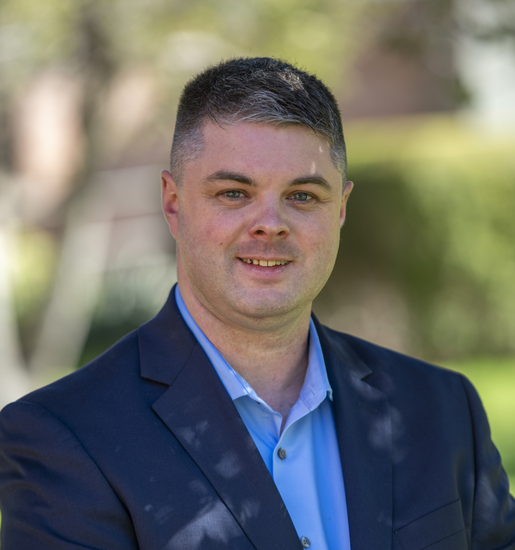
Anna Schewelew is a PhD candidate in Comparative Literature at the University of California, Santa Barbara. Her dissertation project traces the intellectual history of machine translation from the perspective of translation theory and literary and media studies, paying particular attention to the discourses and practices around language, translation and scientific knowledge production which have rendered the idea that machines could translate plausible.
During her fellowship at the Linda Hall Library, she will examine machine translations of Soviet literature on parachute-related technology created by the Translation Division of the Foreign Technology Division at the Wright-Patterson Air Force Base, Ohio, in the 1960s and 1970s.
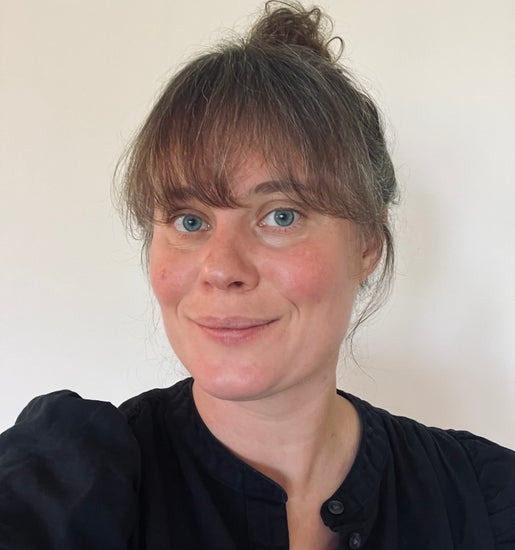
Show and Tell: A Live History of Public Science Demonstrations
Dr. Julian R. Silverman is an Assistant Professor at The Fashion Institute of Technology, part of the State University of New York in Chelsea, New York. He was a previous Haas Fellow at the Science History Institute and a Module Developer for the American Chemical Society’s Green Chemistry Institute. He works with Harrison High School's Science Research Program and is a New York Sun Works Associate Board member.
Dr. Silverman’s work focuses on the intersection between sustainability, science education, and science communication. At the Linda Hall Library, his project titled ‘Show and Tell’ explores the history and practice of live public science demonstrations, connecting the realms of theatre and science. At a time when science demonstrations are going viral online, this project explores how we safely communicate science in meaningful and engaging ways.
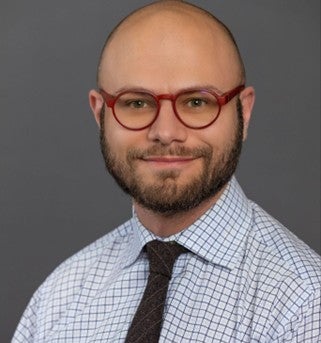
John Sullivan recently completed his PhD in history at Northwestern University and will also serve as a Dibner Research Fellow at the Huntington Library in 2025–2026. His work focuses on environmental, technological, and Bourbon reformist histories in Enlightenment Naples and Guatemala. He has previously held fellowships at New York Public Library, the John Carter Brown Library, and the William Andrews Clark Memorial Library – UCLA.
At the Linda Hall Library, Sullivan will read across early modern texts on earthquakes, vulcanology, geology, and mineralogy to discover how Europeans constructed their notions of architectural permanence and the ways in which seismicity could upend hierarchized classifications of building materials. He is especially interested in the acts of witnessing and investigation that men of science undertook with informants native to seismic zones when determining where and with what one ought to rebuild in the wake of telluric disaster.
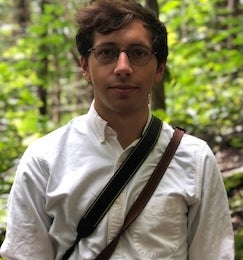
Case Study Approaches to the Concept of Theoretical Entities
Maria Tinajero is a PhD candidate in the Graduate Program in Logic and Metaphysics at the Federal University of Rio de Janeiro in Brazil. In 2019, she earned her Master's degree in Philosophy (Logic and Metaphysics) from the same university, and in 2017, she graduated with Honors with a Bachelor's degree in Philosophy from the National Autonomous University of Mexico.
Throughout her academic career, Maria has researched various aspects of the natural sciences, including the role of values in science and the relationships between scientific knowledge and technology. Her doctoral dissertation focuses on the role that theoretical entities play in scientific change.
As a Linda Hall Library fellow, Maria will conduct research on six case studies involving theoretical entities from different disciplines and historical moments in science: atoms, electrons, and the planet Neptune, which we accept based on our best theories; and caloric, ether, and the planet Vulcan, which have been refuted. These case studies are crucial for developing a clearer understanding of "theoretical entities" and will enhance our comprehension of how we acquire knowledge through science and how scientific knowledge is produced.
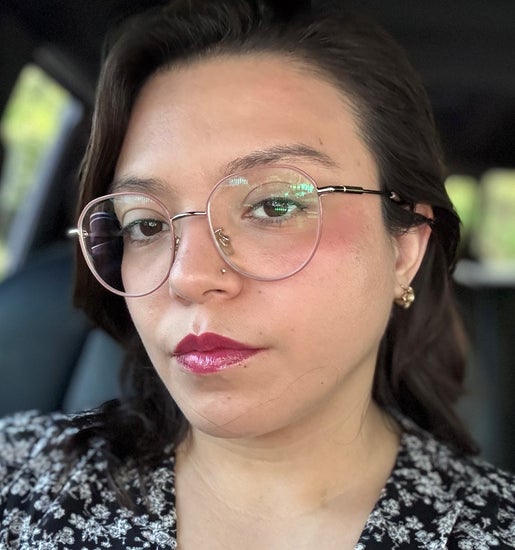
Doris Vickers is a classical philologist, digital humanist, and historian of astronomy with a strong interdisciplinary focus that bridges the humanities and sciences. Currently pursuing a PhD in Classical Philology at the University of Vienna, her scholarly interests include the etymology of star names, the history of constellations, and the application of digital methods to Neo-Latin texts. Her doctoral research centres on Wilhelm Schickard’s Astroscopium.
Doris Vickers is an active contributor to international scholarly communities. She serves as Chairperson of the Etymology Task Group in the International Astronomical Union's Working Group on Star Names and holds fellowships with both the Royal Astronomical Society and the European Society for Astronomy in Culture. Her publications span topics such as ancient skies, digital editions of astronomical texts, and the cultural interpretation of constellations, underscoring her commitment to interdisciplinary research and the digital humanities.
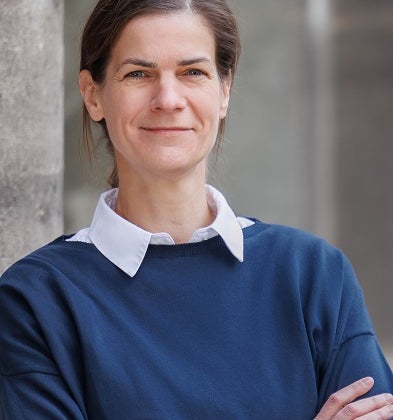
Extra-Illustrating Natural History, 1500-1900
Xinyi Wen is a final-year PhD Candidate in the Department of History and Philosophy of Science, University of Cambridge. Her research explores natural knowledge in cross-contextual dialogues between the early modern and modern times. Funded by the Wellcome Trust, her PhD thesis examines the ‘doctrine of signatures’ — a longstanding argument in medical history positing that plants resembling human organs could treat ailments of those organs. Her thesis traces its transformation as a practical technique from the late 16th-century Upper Rhine to 17th-century Britain, and its afterlife in transcultural encounters. During her PhD, she has curated an exhibition and published on topics including the modern reception of Renaissance astrological medicine, the long transmission of botanical images, and women’s overlooked scientific work in the household. She received the 2024 Margaret W. Rossiter History of Women in Science Prize, awarded by the HSS, and the 2023 Best Article Award by the SSEMWG.
At the Linda Hall Library, Xinyi Wen will begin a new project exploring how extra-illustration -- the practice of pasting collected visual materials into books -- transformed natural history between 1500 and 1900. From the renowned naturalist Martin Lister’s family to the unknown ‘Mrs. Eccles’, her project examines how extra-illustration recontextualises natural-historical images across temporal, geographical, and genre divides. Unravelling the iterations, synchronicities, and anachronicities in extra-illustrations, it questions narratives of revolution and progress in natural history.
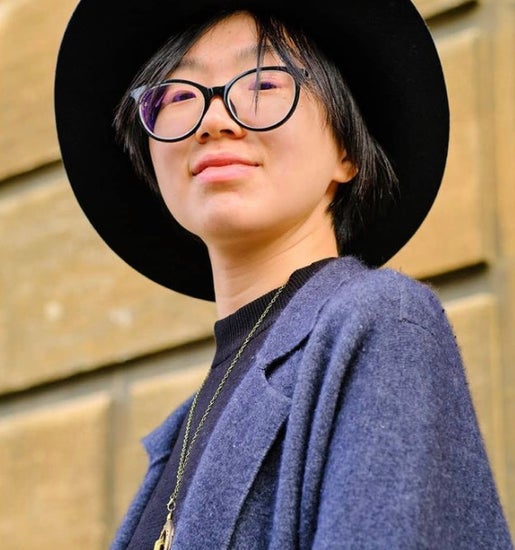
Time, Medicine, and Sickness in Early Modern England
Sheryl Wombell is a PhD candidate in the Department of History and Philosophy of Science at the University of Cambridge and is currently a Freer Prize Fellow at the Royal Institution of Great Britain. Her doctoral research examines the information dynamics of health and healing amongst migrating elites in Europe in the middle decades of the seventeenth century. Wombell’s thesis focuses on how mobility and exile shaped the use of various printed and manuscript media in producing and communicating knowledge about medicine and sickness. In 2024 she was Helfand Fellow at the New York Academy of Medicine Library, working on their early modern medical recipe collections.
As a fellow at the Linda Hall Library, Wombell will conduct research for her postdoctoral project interrogating the reciprocal relationship between time and healing in early modern England. During her fellowship she will utilise the Linda Hall Library’s collections of herbals and works of medical botany to explore temporal practices in botanical healing.

Kwabena Agyare Yeboah is a third-year PhD history student at University of California, Santa Barbara. Broadly, his research lies in the intersection between science, technology and society studies and (West) African history. He uses multispecies analytics to foreground entanglements (conditions) among cosmologies, materialisms, the histories of empire, colonialism, environment, capitalism, and contemporary art and curatorial practices and their bearing on social categories including race (Blackness/body), ethnicity, kinship, gender and class.
